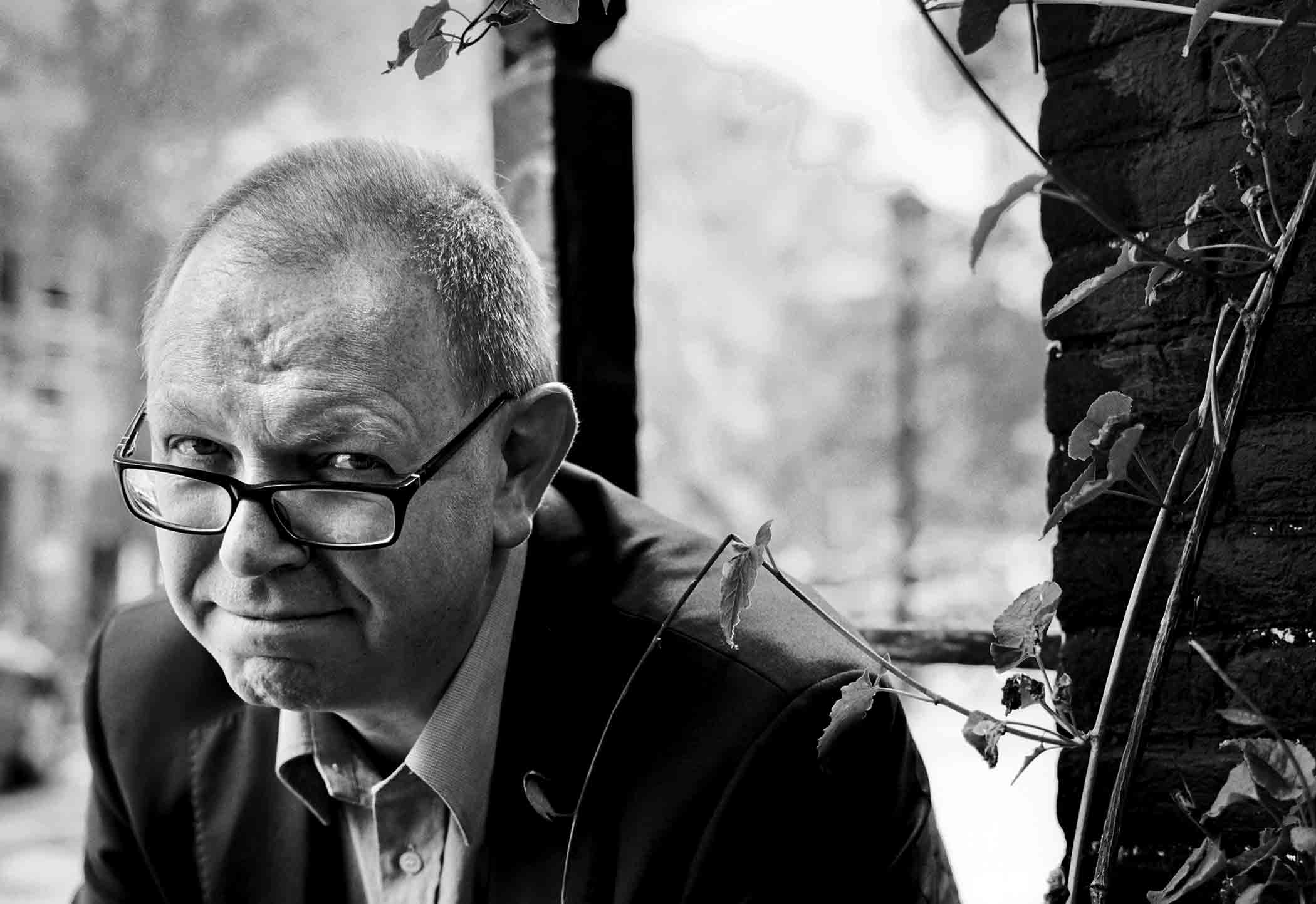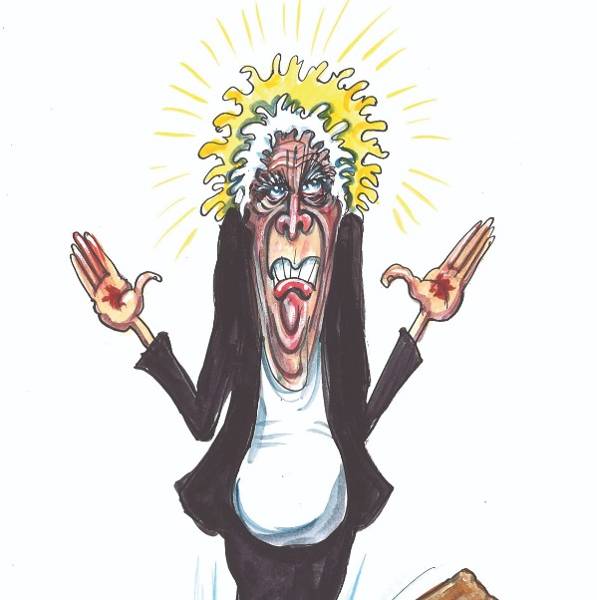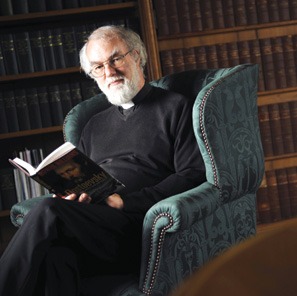 Francis Spufford’s new book Unapologetic, a defence of the “emotional sense of Christianity”, has been lavishly praised by those you would expect to praise it lavishly.
Francis Spufford’s new book Unapologetic, a defence of the “emotional sense of Christianity”, has been lavishly praised by those you would expect to praise it lavishly.
Former Bishop of Edinburgh Richard Holloway, reviewing it for the Guardian, called it “an act of daring, a message from the frontline of an old and bruising war.” Rupert Shortt, religion editor of the TLS, praised Spufford’s courage in “putting his glimpse of the transcendent into words”, and media vicar Giles Fraser said, “It’s far and away the best book about Christianity I have read in years.”
Others, people like you, were not quite so taken with his arguments. When we published an article by Spufford in the September issue, which outlined his case and asked atheists to stop being so disparaging about religion, we were deluged with letters – the biggest response we’ve ever had to a single article – many of which raised serious and reasonable objections to his arguments (some, it should be admitted, were merely disparaging).
And there we could have left it. But one other review of his book, this time by Christopher Howse in the Telegraph, suggests why we did not. “Spufford has the great virtue of making you want to argue with him,” wrote Howse. “The reader is left wanting to hear more from Spufford, even while disagreeing with him.” I agree. So in the interests of hearing more from Spufford, even while disagreeing with him, and of putting New Humanist readers’ objections to him directly, I invited him to meet me for a chat.
I started by asking him what, exactly, he’s unapologetic about.
“I’m unapologetic about asserting that religion is a normal and legitimate part of human experience,” he began. “I’m unapologetic about wanting to disrupt the rather cosy recent cultural consensus that religion must be stupid; I’m unapologetic about not wanting to be patronised; and finally I’m unapologetic about saying that a lot of the contemporary atheist case being made now in Britain is getting religion wrong.”
Spufford’s piece for New Humanist had focused on the relationship between atheists and religion, but I wanted to flesh out his main arguments of the book a bit more before putting the objections. The subtitle of the book is “Why, despite everything, Christianity can still make surprising emotional sense”, which announces the idea that it is more of an experiential account of faith than a philosophical treatise. Is this right?
“Yes, I begin with where people think the debate is now – religion as a disastrous set of social attitudes and mock-scientific ideas about the universe. And I say, ‘No, this treats it as a thing made of ideas, when it is actually a thing made of experience.’ I then give examples of mine, because feelings aren’t lived in the abstract. I mine my own religious history, and go on to try and build, from scratch, a ‘picture in action’ of how the emotions in my religion, Christianity, fit together with each other.”
But before we get too emotional I wanted to put one of the core objections of my readers to his argument. He says that there is an equivalence between religious believers and atheists. We think there isn’t a God, he thinks there is, nobody really knows, so it’s a draw, and shouldn’t we just call a truce? But, hold on, as so many of my readers pointed out, isn’t the burden of proof on the person making the extraordinary claim?
“I have no trouble with the fact that there is no evidence [for God],” he responds. “But if you look at the assumption behind the idea that the burden of proof is on religious people, that assumption is itself not to do with evidence, it is embedded and cultural. It has to do with a religious claim being an extraordinary claim, a claim that is sufficiently detached from ordinary daily life that it would require extraordinary supports. In other words, whereas we talk about chairs and tables and hairstyles without anyone having to do any special work of proof, if I announce that a flying saucer just went past, then you look at me with a sceptical light in your eye. The assumption here is that God is like a flying saucer, he is utterly out of context, an event that would require special proof. But from within religion, God is more like the chairs and the hairstyle. So I am not going to agree that the burden of proof is necessarily on the person who says he’s there, it’s more evenly balanced than that. I think it is a consequence of the remoteness of religion now from a lot of British people’s experience that they’ve assigned God to this remote and far away, and therefore inherently improbable, position.”
He then admits his own doubts: “Having said all that, honesty compels me to admit that there are mornings when I look around at the solid, compact, self-sufficient material world that science can explain, and say, why are you in the business of saying there is more than this? So I am not unhearing of all the inductive arguments. I see the force of Hume in the 18th century arguing against miracles. If you are talking about loaves magically multiplying, let’s look at our experience – do loaves magically multiply? No, ladies and gentlemen, they really, really don’t. So this gives us probabilistic information about how to take the New Testament. I feel the force of that. The whole point of my book is to try to indicate what the blob of emotion is on the other side that tips the scales, or rather tips it back into balance. I am not saying that the religion side of the scales goes down with a definitive clang after which I am not going to pay any attention to Mr Hume and his absurd notions on miracles. I am saying it tips it enough so that the scales wobble in this uncertain way in which there is room to be guided by the heart.”
Ah, the heart. Yes, let’s consider emotion then.
The set-up for the book is Spufford sipping cappuccino in a café in Cambridge, drained after a night-long fight with his wife (he implies, but does not state, that he has done something that threatens the marriage and requires forgiveness, something that makes him uniquely receptive to the Christian promise of redemption). Mozart comes over the speakers, and he is suffused with a sense of peace and mercy. What did this moment of epiphany mean to him?
“The music, and the religious sensibility it summoned, gave a profound, responsive, realistic acknowledgement of the messiness of human motivations and how multiple and untidy – and sometimes clumsy and not entirely well meaning, and occasionally self-destructive, as well as capable of love and heroism and forgiveness – we are.” (To the delight of many reviewers Spufford coined a new term for this – HPtFtU, the Human Propensity to Fuck Things Up). “Religion seems to me,” he continues, “to provide a language to talk about the whole range of human experience, and in particular, it provides something to do with the parts of you that you find hard to take. It provides a place to go with what I’m not going to call sin, because that word has been corrupted.”
But, I interrupted, it does sound very much like the notion of original sin. “Yes, original sin is a friendly and accurate doctrine, not because it has anything to do with the Garden of Eden, but because it is observably true that human beings are capable of horrible stuff as well as good stuff. Original Sin is simply a way of saying we are prone to fuck things up on purpose. Religion doesn’t give you sin as a series of terrible crimes under which you must cower, but rather as a language to talk about your own biography. You could talk about it in psychoanalytical terms just as easily.”
Religion Spufford-style emerges as a language to talk about human weakness – a kind of therapeutic toolkit – while all the God the creator and “thou shalt not” stuff fades into the background. It doesn’t any more seem a matter of what’s capital-T true. “But I am making a truth claim here for religion. I don’t think it is a menu to be followed according to taste; ultimately it is a gamble, under conditions of radical uncertainty, on it being true – on there being a state of the universe to which it corresponds, though we can’t get at that claim to verify it.”
But was all this emotional support stuff enough, then, to trump his doubts, to quiet his commitment for science, logic and reason? (I think he found the question a bit impertinent.) “Logic and reason belong to us just as much as they belong to the ‘rationalists’; indeed the name of the Rationalist Association is slightly imperialistic in its assumptions about who’s got the reason around here.”
I thought it best to leave the terrain of reason. His book seems to justify religion by saying it makes emotional sense. But couldn’t you justify anything by saying it makes a “kind of emotional sense”? Charles Manson probably thought what he did made emotional sense. Doesn’t it just come down to subjectivity? And what then is left of God, if he’s just some ill-defined force of mercy?
“Yes, but the word ‘force’ is a word out of physics, and indeed out of Star Wars. It’s more that God is the solidity of all solid things, and the movement of all moving things. Another analogy might be The Matrix, except that the world is not made out of code, the world is made out of love.”
His pop-culture references remind you that Spufford is a sci-fi aficionado (we had a brief but expert, on his side, discussion of Iain Banks’ oeuvre). He’s of the world, not a dusty throwback, a thoroughly modern man who wants believing in God to appear thoroughly modern and thoroughly ordinary. He is offering support to beleaguered believers, and some explanation for the rest of us. As he says in the book, he wants to demystify religion. But then he goes and says something like “the world is made of love”, or “God is the movement of moving things”. As a non-believer, I just don’t get it. I can see how he might want to feel it, and even that it would be great if it were true, but I don’t know how one goes about believing that.
“Look, I can report that feeling mercy is a genuine experience. It does actually happen and I’ve done my best to recreate it in words on the page. It may be, though, that there is a bit of room for manoeuvre here in that the experiences you think of under a different heading are the same ones I think of as religious experiences. I remember reading that Terry Pratchett, shortly after his Alzheimer’s diagnosis, had had a moment when he had felt an assurance of deep safety, some sense that everything was going to be all right, which didn’t rule out where the Alzheimer’s might go. He clearly does not think that is a religious emotion. I would say it was, that was probably the thing I mean when I talk about the presence of God. Maybe this is a categorisation, a labelling, problem.”
Maybe. On the subject of labelling I put to him another of the objections of New Humanist readers. He is keen to distinguish his kind of “good” religion from that of the Taliban or American evangelicals; he objects to the straw man argument of atheists that lumps all religion together. Yet isn’t he guilty of doing the same thing with atheists? Reading his book I found myself thinking, I’m an atheist, but I don’t think like that.
“I entirely take the point that I have assumed that the atheist equivalent of the hellfire mob is characteristic of all atheists. I concede that’s not true. Nevertheless, the public discussion of religion has been amazingly shaped by the pervasiveness of what I would see as the daftest version of the atheist case. I’m going to point the finger at Richard Dawkins here, because I think The God Delusion specifically has made our ability to talk about religion harder. It has made conversation stupider and nastier. It is a profoundly stupid book as far as I’m concerned. (He’s a wonderful evolutionary biologist, by the way, I have learned a lot from him!) But it is hard to convey the air of derision around religion now. It is very difficult to talk about belief in public without people thinking you are taking some sort of diabolical liberty.”
Isn’t this perhaps because religion, and its privileged position in culture, is no longer taken for granted? “I don’t want it taken for granted. I want it discussed in terms that concede mutual uncertainty, and I want it tugged back slightly towards the limelight so we can have better conversations about it.”
A final objection. It was put very eloquently in a letter to us from the science writer Phillip Ball, who declared himself an admirer of Spufford and sympathetic to his overall aims, but critical of the way he was too dismissive of the damage religion had done and the justifiable anger many people felt as a consequence.
“Yes, I entirely acknowledge there is a lot of stuff that religion is responsible for, or has done, or continues to do, that you would be justified in being angry about. I am not saying that religion has no effects in the world. But I want to say that religion’s effects in the world are much more various than the characterisation of it just as a source of fear, bullying, repressing of questioning, bigotry about sexuality, misogyny. You get an awful lot of talk about religion as if that were its only set of social effects, and those are so dreadful that we can judge the whole package by those. Those are dreadful, but religion is not some special all-evil-all-the-time department of human activity. Religion is an enormously various, culturally complicated, embedded human enterprise through which a vast array of human motives run. It is also a vehicle for asceticism, carnality, generosity, stinginess – every other pair of opposed qualities you can think of – it is huge, as various as any other aspect of human culture and as various in its effects as politics or law.”
I wonder if his spirited defence of religion from the depredations of New Atheism has given him common cause with those, like former Archbishop of Canterbury George Carey, who claim Christians are being persecuted.
He’s appalled by the notion. “No, the danger here is a kind of self-pitying Christian identity politics which I think would be disastrous. No, we aren’t persecuted! Persecution is when they burn your churches down or don’t give you licenses to build – it is not people politely laughing at you in the Guardian. No, Christianity is in a state in this country, which is largely its own fault, and the tools for getting people to think better of us are entirely in our own hands. We will have to talk in a way that people like more, and find ways to describe who we are and what we are in ways that that make more sense. That is not a situation of persecution. That is a situation of being a minority. I can live with that.”
Listen to the full conversation between Francis Spufford and Caspar Melville (produced in association with PodAcademy)

